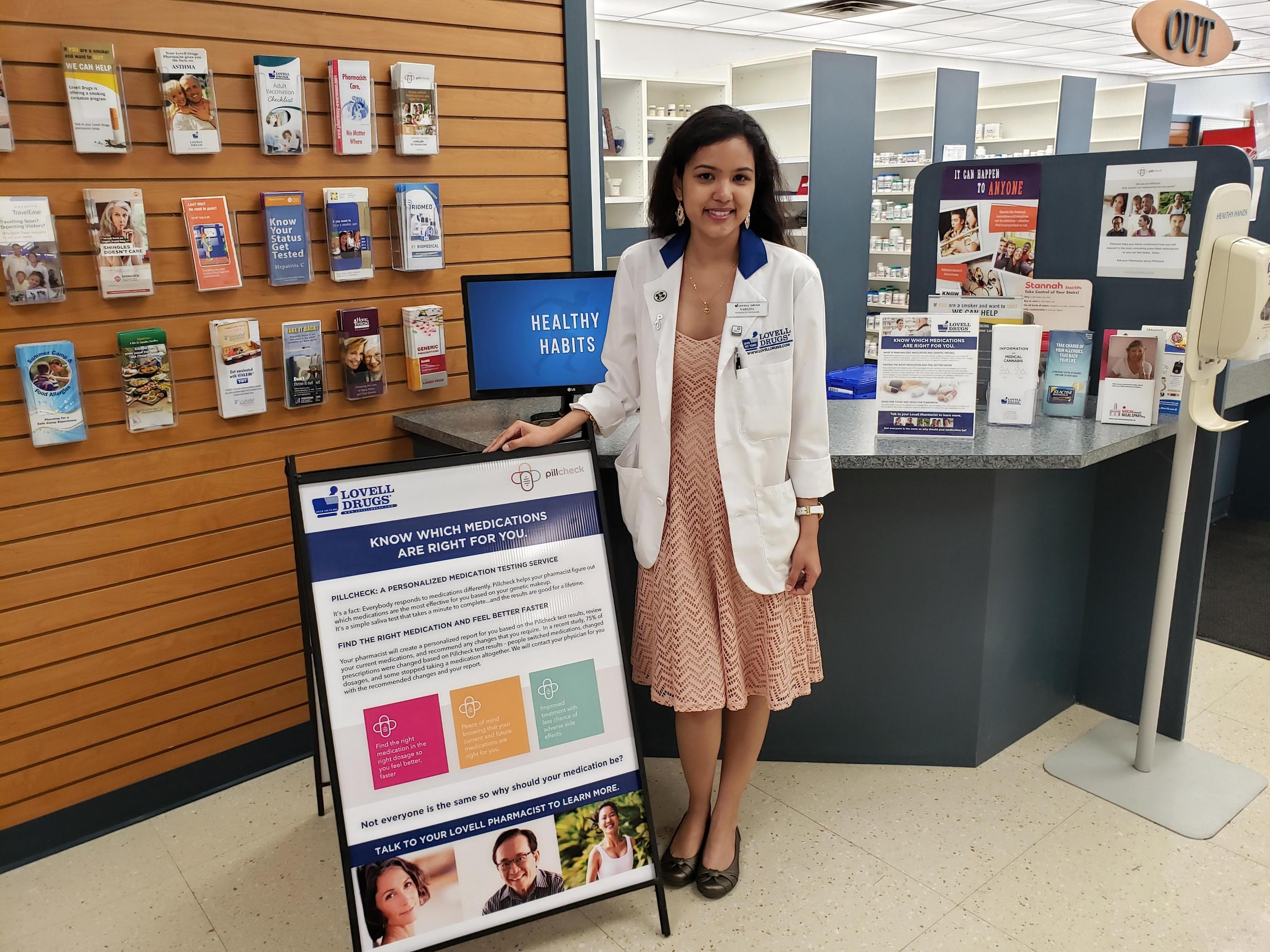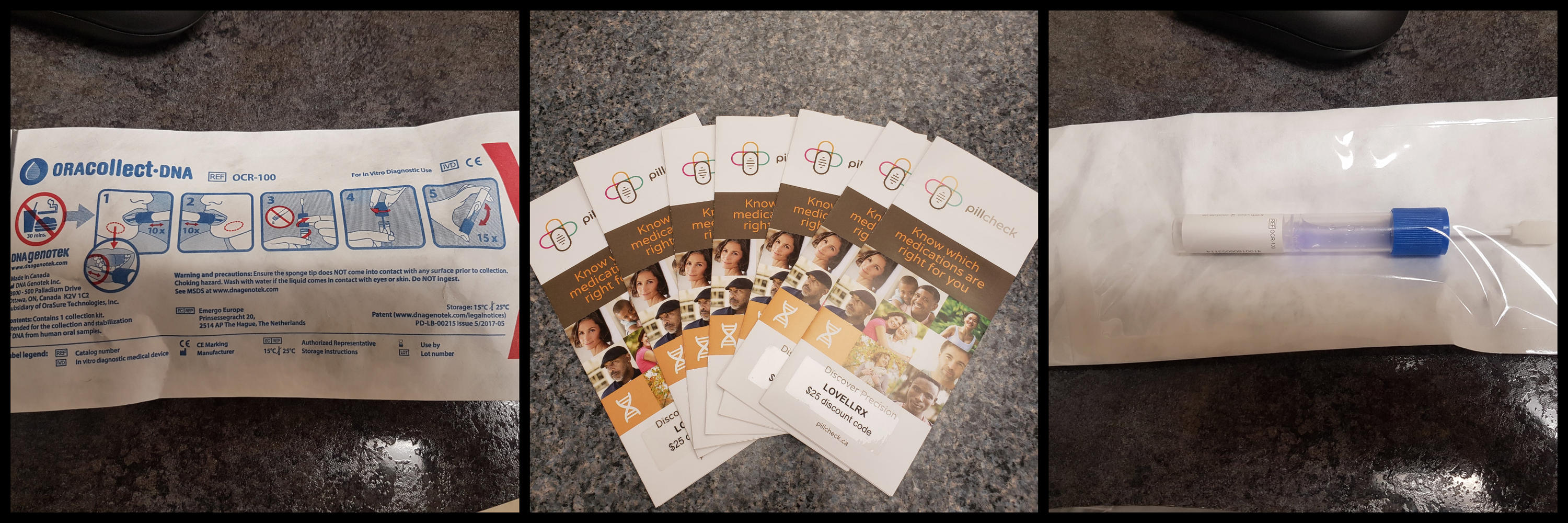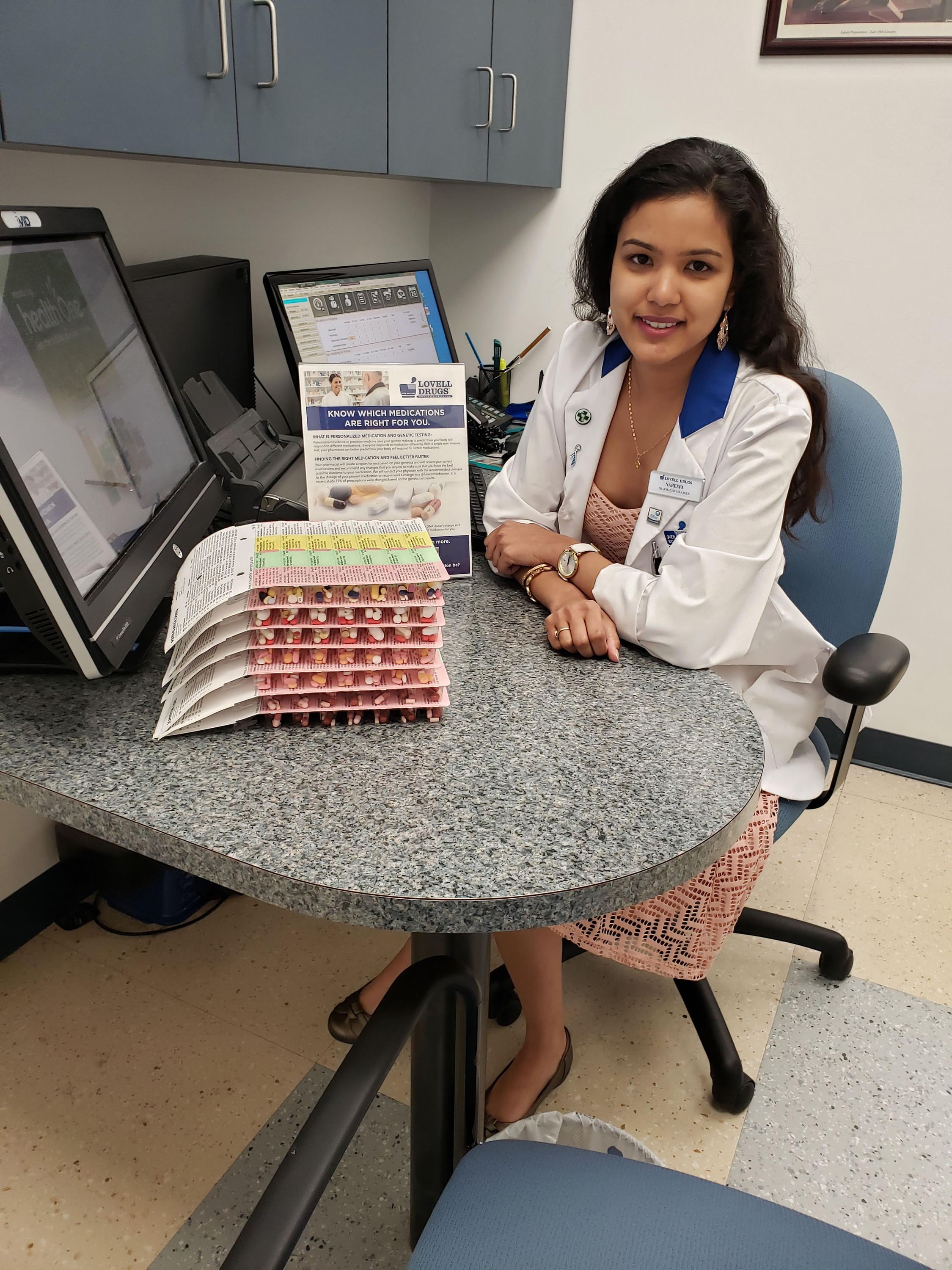By: Nareefa Nasrudeen (Rx 2017), Pharmacy Manager, Lovell Drugs, Oshawa
Fall 2019

The goal of pharmacogenomics is to guide treatment decisions by selecting the most appropriate choice and dosage of drugs – the option that has the best efficacy and fewest harmful side effects - using predictions from an individual’s genes. It avoids the trial and error process, saves health care costs, improves adherence, prevents dangerous adverse events and ultimately improves the quality of life of patients.
I first heard about this emerging field at PharmacyU conference. Having an undergraduate background in Biochemistry and a passion to diversify my current practice, I became interested in offering this service to my patients.
The first step I took was to reach out to leaders in the field and gather feedback on their experience with PGx. Of course, some pharmacists had negative remarks - some said that no one will pay for this service and that clinicians are not aware of it. Adopting brand new services is always hard but we will never know the results if we do not take the risks. Since the investment was minimal I decided to move forward with this new venture to better serve my patients.
In preparation I equipped myself with the necessary knowledge by taking the Pharmacogenomics for Health Professionals continuing education course offered by uWaterloo Pharmacy. I also completed a free online course on PGx offered by RxBriefCase. These courses helped me understand the guidelines and the tools needed to introduce PGx into my pharmacy.

Some of the materials used in a pharmacogenomic testing consult
My employer was happy to support and guide me because PGx presented another way to enhance our patient care by offering an additional service that has the potential to generate more revenue. Along with the profits gained from selling the testing kits, PGx allows us the opportunity to conduct MedsChecks and Pharmaceutical Opinions. I did not have to make any significant changes to my practice except for creating promotional materials and spreading awareness to the other pharmacists on staff so that they can be on board as well.
A major challenge and setback is cost to patients. Although there are a lot of patient who can benefit from PGx, this service is quite expensive (around $500) and, so far, is typically not covered under private insurance. However, there are some patients who are willing to pay out of pocket - especially those who are frustrated with changing between multiple medications due to intolerable side effects. In future, the cost for sequencing will also be cheaper due to advances and demand for the sequencing technology.

In one of my cases, I was able to change a patient’s medications due to a drug interaction involving a strong CYP2D6 inhibitor affecting her antidepressant metabolism. This was missed for years in the past because when pharmacists checked her refills, no one evaluated her medications in that perspective.
My advice to other pharmacists is do not be afraid to try new ventures that interest you. It may or may not work but it is a learning process. If you are able to help even one patient avoid a harmful medication event or manage their condition better, that is rewarding enough.
Do you do something novel in your practice that you’d like to share? Let us know and could be the next author of a Pioneering Practice article.